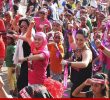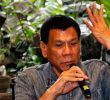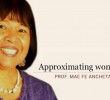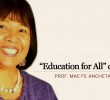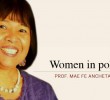In the local scene, residents had revelry last March 16, 2016 to commemorate Davao City’s 79th year as a chartered unit. It was a day full of fun doubled with spectacular sights of creations and mobilizations of people who came in droves. People’s organizations did not fail to present themselves in their respective symbols depicting particular issues of the sector. But other sectors may have not figured much as to boldly project their own set of concerns or probably I missed to scour the tableaus of all the participating groups- 245 contingents actually.
Hey, March 16, 2016 lest you forget was also a significant day supposedly for peace-loving Filipinos because it was the debut of the first pact between the Government of the Philippines (GPH) and the National Democratic Front (NDF). The pact, on its 18th year since it was signed, serves as the cornerstone of the pending agreements towards achieving a just and lasting peace in the country, being referred to here is the Comprehensive Agreement on Respect for Human Rights and International Humanitarian Law (CARHRIHL). Of course, there is no point of commemorating it with festivities as human rights violations continue unabated in the midst of BS Aquino’s counter-insurgency campaign, Oplan Bayanihan, that not only destroys the environment but physically eliminates the community organizers and people’s organizations’ leaders as well.
March 16 as CARHRIHL’s recognition day, reminds the people of the long overdue peace negotiations. The time is ripe for the 2016 local and national elections come so fast. Undoubtedly, the season is an opportune time for examining the peace agenda within the platform of the elections hopefuls. Joining the people’s quest for a just and enduring peace comes in handy, for the electorates simply need to express creatively the following: 1) the day to day struggle for healthy food on the table, 2) land for the tillers, 3) decent work with just wages, 4) equal pay for equal work, 5)decent homes, 6)basic health services up to the remote rural villages, 6) preservation of positive cultural traditions, 7) advancing the indigenous and Moro peoples’ right to self-determination, 8) mechanisms divesting women from domesticating tasks, among others.
Fairly, the roots of the political armed-conflict should be responded to as enlighten by these agenda. Only then we could say that the politicos come closer to the people’s realities when these are integrated seriously, in the executive and legislative actions. Concomitantly, the bourgeois elections have been here for decades that obscure the calls for the protection of human rights, fulfillment of justice and realization of an open and dynamic society. Patronage politics is the name of the game of the elite where people have been blinded to face the truth behind the electoral struggle. Let it be understood that unless the roots of poverty and oppression of people are addressed, genuine change is not within reach.
Indeed, it is the duty bearers and stakeholders’ to assess the common ground, to come together for a sound call: to resume the peace talks between the GPH and the NDF in order to come to a negotiated peace settlement as the seeds have been sown.

